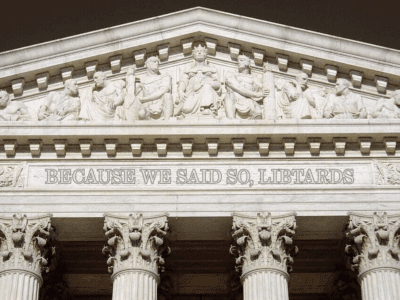A Midnight Public Land Sale?
Last-minute addition to House reconciliation bill proposes sale or exchange of hundreds of thousands of acres of public lands
There was a last minute amendment added to the House Natural Resources Committee markup on May 6, an amendment which has gotten a lot of negative attention, including from conservative outdoors advocates. The amendment, made by Representative Amodei (Republican, Nevada) and Rep. Maloy (Republican, Utah) would mandate the sale or exchange of at least 449,174 acres of federal public lands in Nevada and Utah. (For a sense of scale, that’s about half of the size of Rhode Island. That acreage total is limited to Nevada, although the acreage amounts in Utah appear to be about 11,000 acres total, if you count up all the provisions of the bill that list individual parcels for sale.) For the current legislative language, start at page 657 of this document, which is the current reconciliation bill.
The land in question falls into three major buckets. One is about 356,000 acres of land in Pershing County that are to be exchanged for private land – these are lands in a “checkerboard” of alternating federal and private ownership that can make management of those lands very difficult. Exchange in theory means that the value of the federal land is equal to the value of the private land obtained.
Two are lands around growing metropolitan areas in Nevada, Reno and Las Vegas, that are identified in maps as suitable for sale to facilitate housing production.
Three are lands in southwestern Utah, near St. George, that are identified as suitable for disposal – some of these lands might be for housing, but some also appear to related to water and other infrastructure. St. George is an area that has been booming and Rep. Maloy emphasized the need for land for growth in talking with the media. The need for land for housing in St. George in particular, and the West in general, was the subject of a recent op-ed in the New York Times in favor of land disposal.
In theory, federal land sales and exchanges can be the right thing to do. For years, there has been a federal program to sell land that does not have significant recreational or conservation value in the Las Vegas metropolitan area to facilitate additional housing production. Proceeds from those sales go towards land conservation, restoration, and recreational infrastructure on federal public lands in Nevada, including acquisition of parcels important for conservation and access. Expanding that program to other areas in the West that need more housing makes a lot of sense.
But this is not that approach. There are a lot of reasons to be suspicious here. The amendment was proposed late at night, with minimal debate. The maps for disposal were not even available until after the vote was taken. The maps for disposal were developed after the transition to the new administration this year, which raises questions about whether the lands identified for disposal truly reflect important conservation values, or are instead part of what has been a broader, radical ideological effort to attack government in this administration. And of course, given the track record of the last few months, it is hard to trust this administration to implement this legislation in any way that might reflect the public interest or conservation values. Finally, as salt in the wound, the proceeds from the sales would not benefit public lands management and conservation, but simply go into the general Treasury fund, to help facilitate the tax cuts proposed in the reconciliation bill.
It’s no surprise that these proposals have been controversial. What is surprising is that one of the leading opponents is Representative Ryan Zinke (Republican, Montana), the same person who was a controversial Secretary of the Interior in the first Trump Administration. Rep. Zinke has promised to fight the land sale provision and get leadership to strip the provision out. We’ll see if he truly does fight, and if he is successful. If he is, I hope that Congress proceeds with a more thoughtful and effective approach to land sales and transfers, one that assure that lands are sold or exchanged in a prompt manner, but also in a way that assures that the public lands benefit from the sales, and that important conservation and recreational values of those lands are protected.
Reader Comments
One Reply to “A Midnight Public Land Sale?”
Comments are closed.






I noted with great interest the part of the reconciliation bill pertaining to project sponsor opt-in fees for NEPA documents. I do not see how it can legally prohibit judicial review (page 620) and do not understand the part on the FONSI and ROD (page 621).